Mountaintop Removal is a film of genre Documentary
Mountaintop Removal (2007)

If you like this film, let us know!
- Infos
- Casting
- Technical infos
- Photos
- Videos
- Film quotes
- Characters
- Music
- Awards
Genres Documentary
Themes Environmental films, Documentary films about business, Documentary films about environmental issues, Documentary films about technology
Rating80%










Mountaintop Removal is a 2007 documentary film directed by Michael O'Connell. The film explores how mountaintop removal mining in West Virginia has affected local communities. Filmed over a two-year period, Mountain Top Removal features community advocates, such as Ed Wiley, Larry Gibson, Julia Bonds, Maria Gunnoe, and Mountain Justice Summer volunteers, in their efforts to oppose the destruction of Southern Appalachia's natural landscape. The film includes commentary from Jeff Goodell, author of Big Coal: The Dirty Secret Behind America's Energy Future, geologists Dr. William Schlesinger and Dr. Peter Taft, and also Bill Raney, President of the West Virginia Coal Association. The film won the Reel Current Award (presented by Al Gore) at the 2008 Nashville Film Festival. Mountaintop Removal also received a Jury award at the 2008 Wild and Scenic Film Festival, Audience award at the 2008 Woods Hole Film Festival and was screened at The Lincoln Center on Earth Day April 22, 2008. The film is currently being distributed nationwide on PBS through NETA. The film's soundtrack includes music by Jim Lauderdale, Donna the Buffalo, John Specker and Sarah Hawker.
Comments
Leave comment :
Suggestions of similar film to Mountaintop Removal
There are 8860 with the same cinematographic genres, 1580 films with the same themes (including 12 films with the same 4 themes than Mountaintop Removal), to have finally 70 suggestions of similar films.If you liked Mountaintop Removal, you will probably like those similar films :
 , 40minutes
, 40minutesOrigin USA
Genres Documentary
Themes Environmental films, Documentary films about business, Documentary films about environmental issues, Documentary films about historical events, Documentary films about technology, Disaster films
Rating57%





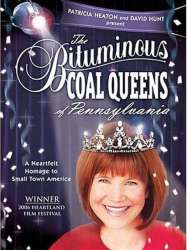 , 1h29
, 1h29Directed by David Hunt
Origin USA
Genres Documentary
Themes Environmental films, Documentary films about business, Documentary films about environmental issues, Documentary films about technology
Actors Fabian Forte
Rating69%






Origin USA
Genres Documentary
Themes Environmental films, Documentary films about business, Documentary films about environmental issues, Documentary films about technology
Rating69%






Taken for a Ride (1996)
, 55minutesOrigin USA
Genres Documentary
Themes Environmental films, Transport films, Films about automobiles, Rail transport films, Documentary films about business, Documentary films about environmental issues, Documentary films about technology, Road movies
Rating78%





Taken for a Ride begins with interviews on the inefficiencies and congestion on Los Angeles' highways. Next, the film displays a variety of archival footage on streetcar systems around the United States, demonstrating that streetcars were a widespread and efficient means of transportation. The film continues into a description of the General Motors streetcar conspiracy, starting with a history of National City Lines and Pacific City Lines and General Motors' investment in both companies. The film builds the argument that streetcar systems purchased by these companies were deliberately sabotaged through service reductions and fare increases, then replaced with profitable, less convenient, bus systems. Next, the film makes a connection between this conspiracy and the construction of the Interstate Highway System and the suburbanization of America in the face of the Highway revolts in the 1960s and 1970s. The film ends with footage of the reduction of Philadelphia's trolleybus system at the time of filming.
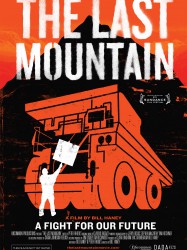
The Last Mountain (2011)
, 1h35Origin USA
Genres Documentary
Themes Environmental films, Documentary films about business, Documentary films about environmental issues, Documentary films about historical events, Documentary films about politics, Documentary films about technology, Political films
Rating76%





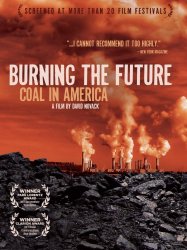 , 1h29
, 1h29Origin USA
Genres Documentary
Themes Environmental films, Documentary films about business, Documentary films about environmental issues, Documentary films about technology
Rating73%





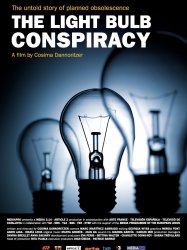
The Light Bulb Conspiracy (2010)
, 1h15Genres Documentary
Themes Environmental films, La mondialisation, Films about the labor movement, Documentary films about business, Documentaire sur l'altermondialisme, Documentary films about environmental issues, Documentary films about historical events, Documentary films about technology, Documentaire sur le monde du travail
Actors Casey Neistat
Rating79%





Un historique de cette stratégie commerciale et industrielle visant à limiter la durée de vie de certains produits ou appareils est relaté à travers plusieurs exemples particulièrement significatifs.
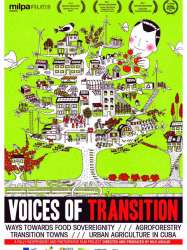
Voices of Transition (2012)
, 1h5Origin France
Genres Documentary
Themes Environmental films, La mondialisation, Films about the labor movement, Documentary films about business, Documentary films about environmental issues, Documentary films about technology, Documentaire sur le monde du travail, Disaster films
Rating75%





Using interviews and overlays of graphics and text, the film presents the current problems facing industrial agriculture. It explores why in the interviewees' view the current industrial model is not up to the task of feeding the world's people. According to the film every calorie of energy contained in a food source currently takes between 10 and 20 calories of crude oil in the production of fertilizers and transportation to produce, leading to a strong dependence of the cost of food on oil prices. As a result of peak oil and increasing oil prices this dependence will lead to ever increasing food prices. According to the film, this dependence already represents a significant weak-spot in the global food supply chain. Additionally, agriculture is already responsible for 40% of greenhouse gas emissions, contributing to climate change. Furthermore, the film argues that the overuse of inorganic fertilizers has been responsible for the loss of soil fertility and threatens the complete loss of usable soil within the next decades through soil erosion and sinking crop yields. These effects, according to the film, can only be partly mitigated by the increased use of those same fertilizers. The loss of workplaces, the concentration of land in the hands of a few (allegedly a farm closes every 23 minutes in France) as well as the dependence on large corporations are enumerated as side effects of the industrialisation of agriculture since the 1920s. Companies, such as Monsanto and Bayer, control everything from seed stock to fertilizers and the necessary chemical mixes for hybrid plants, thereby controlling the entire supply chain. The film argues that this development was supported through subsidies from the World Bank. Interviews with Vandana Shiva, the founder of the Transition Towns movement Rob Hopkins and various agricultural experts serve to argue this viewpoint. The dependence on crude oil is illustrated through the example of the wholesale food market in Rungis.
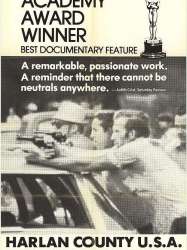
Harlan County U.S.A. (1977)
, 1h43Directed by Barbara Kopple
Origin USA
Genres Documentary
Themes Environmental films, Films about anarchism, Politique, Films about the labor movement, Documentary films about business, Documentary films about environmental issues, Documentary films about politics, Documentary films about technology, Documentary films about anarchism, Political films
Rating81%





Kopple initially intended to make a film about Kenzie, Miners for Democracy and the attempt to unseat Tony Boyle. When miners at the Brookside Mine in Harlan County, Kentucky went on strike in June 1972, Kopple went there to film the strike against Duke Power Company which the UMWA had helped to organize. The strike proved a more interesting subject, so Kopple switched the focus of her film.
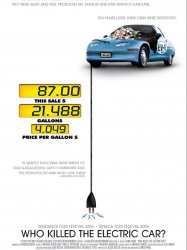
Who Killed the Electric Car? (2006)
, 1h32Origin USA
Genres Documentary
Themes Environmental films, Transport films, Films about automobiles, Documentary films about business, Documentary films about environmental issues, Documentary films about technology, Road movies
Actors Tom Hanks, Martin Sheen, Mel Gibson, Ed Begley Jr., Phyllis Diller
Rating75%





Au début des années 2000, plusieurs modèles de voitures électriques étaient en circulation en Californie, dont l'EV1, produite par General Motors et mise en location à long terme, puis retirée du marché en 2006. Ce documentaire retrace la mort prématurée de ce véhicule et enquête sur l'importance des lobbies du pétrole dans l'état de Californie.
 Connection
Connection